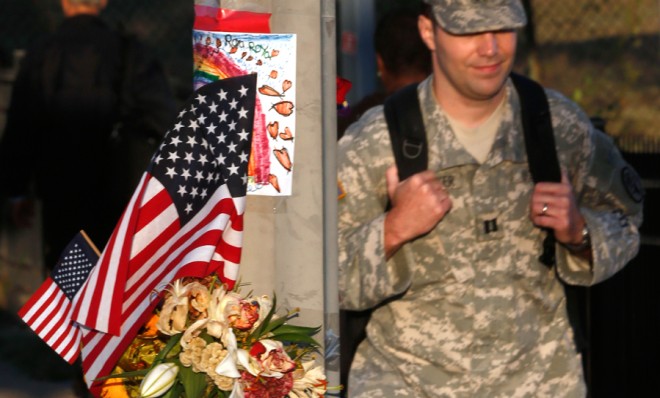Don't try to make sense of mass shootings


A free daily email with the biggest news stories of the day – and the best features from TheWeek.com
You are now subscribed
Your newsletter sign-up was successful
Gun violence in America confounds me, even though I am sure of many things:
I am sure that there are too many guns, and also that there is no way to get rid of them.
It's obvious that guns, and their availability, play a huge role in routine gun violence, which is less shocking but more prevalent and destructive than mass shootings.
The Week
Escape your echo chamber. Get the facts behind the news, plus analysis from multiple perspectives.

Sign up for The Week's Free Newsletters
From our morning news briefing to a weekly Good News Newsletter, get the best of The Week delivered directly to your inbox.
From our morning news briefing to a weekly Good News Newsletter, get the best of The Week delivered directly to your inbox.
I am sure that most people with mental health issues can hold a security clearance and be functional and trusted to perform key jobs.
I am certain that the vast majority of people with schizophrenia will not resort to gun violence. Ever.
I am pretty certain that there is no reliable matrix to predict, with anything close to reasonable certainty, that a person with "X" traits and "Y" life experiences will perpetrate a mass shooting, or otherwise brutalize people. So I believe that a mental health surveillance system, hastily constructed, would be a significant and worrisome expansion of the state, and an ineffective one, at that. The mind doesn't work that way. If you're going to change gun control laws, change them for everybody.
I know that it is exceptionally difficult to treat people with severe and disabling psychiatric health problems without a lot of money, a lot of talented doctors, and a supportive whole social structure to back up the treatment.
A free daily email with the biggest news stories of the day – and the best features from TheWeek.com
I am pessimistic that something can be done to reduce the prevalence of mass shootings. If Sandy Hook, the massacre of children, could not shift the debate over the architecture of gun purchase control, then what will?
Suffice it to say, there were warning signs that something was wrong with Aaron Alexis. The U.S. Navy was warned about him by police. That warning went unheeded. The NCIS folks who looked at his record decided that he was not a threat. Are we THAT afraid to confront people who are having trouble dealing with their shit?
On the other hand, what should the Navy have done? It makes little sense to bar him from his work, because work is often a way through severe episodes of a mental illness, and because Alexis would not have been subject to surveillance outside the gates of the Navy Yard, assuming that the overburdened VA system did not Baker Act him for his own good. It's also true that the vast majority of people who present signs of mental illness are not going to engage in a violent act. Judging by probabilities, Alexis was not a risk.
A psychiatrist might say that Alexis needed round-the-clock care, that he was a danger to himself, that the probabilities that someone with his symptoms would commit a violent act are much greater than the probability that you or I would do so. But others might have decided that isolating him would make his condition worse. Such is the complexity of illnesses that are biological and social at the same time.
After mass shootings, a few things always happen. We're told that the immediate aftermath is not the best time to talk politics, which is exactly wrong. We then look for something elusive: a common denominator. We look for what was missed. We seem confident that if only we had done this or that, that Alexis would not have killed 12 people in Washington this week. We won't find an answer, probably because there is none. The worst type of violence is senseless.
It literally does not make sense to an ordered, embodied, functional mind.
Marc Ambinder is TheWeek.com's editor-at-large. He is the author, with D.B. Grady, of The Command and Deep State: Inside the Government Secrecy Industry. Marc is also a contributing editor for The Atlantic and GQ. Formerly, he served as White House correspondent for National Journal, chief political consultant for CBS News, and politics editor at The Atlantic. Marc is a 2001 graduate of Harvard. He is married to Michael Park, a corporate strategy consultant, and lives in Los Angeles.
